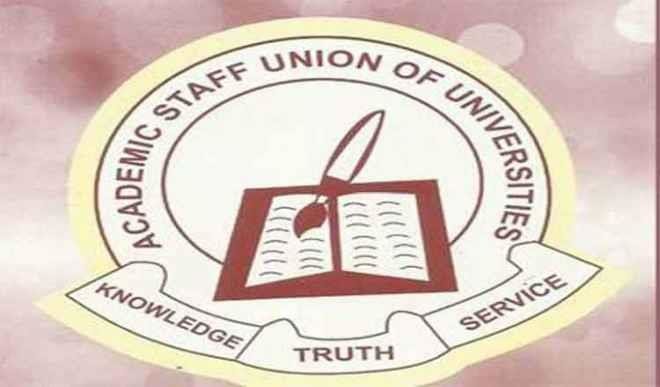The Academic Staff Union of Universities (ASUU), on Thursday, called on the National Assembly to resist all attempts by the office of the Accountant General of the Federation to incorporate university lecturers’ wage into the Integrated Payroll and Personel Information System (IPPIS).
The ASUU Coordinator, Lagos Zone, Prof. Olusiji Sowande, at a press briefing in Abeokuta, Ogun State, said a presidential directive or a government policy cannot supersede an extant law of the federation.
He said while the union is not opposed to accountability and transparency in handling public funds, it shall resist any method that violates its agreement with the government and that which sets aside the enabling laws, regulations and statutes of the universities.
He said the IPPIS is a directive that seeks to breach the ASUU-FGN of 1992, 2001 and 2009 which received legislative backing by the national assembly.
Sowande observed that to allow IPPIS to stand is a total breach of rule of law, constitutionalism and the principles of fundamental human rights and rule of law which the President himself swore to defend.
He challenged the national assembly to rise to the occasion and defend the union.
He said: “The presidential directive that all employees of the federal government in MDAs that fails to enrol in IPPIS by October would not receive salary is not in line with the established laws of the universities and it is a plot to forcefully enrol lit members into IPPIS.”
“It is our sincere belief that the President would not violate his oath of office to abide by the constitution and the law of the land when he stated during his swear-in into office that ‘in all circumstances, I will do right to all manner of people, according to the law.’ Therefore, where there is a conflict between the law and policy/directive, the law takes precedence.
“The intention of government through the office of the accountant general of the federation to forcefully enrol university staff into IPPIS without considering the peculiarities of the university and their enabling laws is not acceptable to our union and it is a glaring call for further crisis within the Nigerian University System. In addition, the deliberate truncation of the process of renegotiation of 2009 ASUU-FGN agreement is of great concern to our members. The government should not stretch our patience and understanding of the elastic limit.”
In the same vein, the ASUU Chairman, University of Lagos (UNILAG) Dr Dele Ashiru said the government must not treat universities as government ministries and agencies.
He said: “Universities cannot be allowed to be brought under the dictates of one Accountant General whose academic qualifications can be questioned.”
Also Read: Claims of insecurity at Eastern Ports, conspiracy to deny ports full operation – Pepple
According to him: “At the soul of this struggle is the rabid determination by a draconian government to bring everything under its claws. For so long, we have been challenging the question of over-centralisation in Nigeria. This is also another manifestation of government trying to overreach itself by bringing all government ministries, agencies, departments and now including autonomous universities under the direct control of one single individual who calls himself the Accountant general of the federation. Accounting for nothing.
“Over the years, billions of hard-earned resources in Nigeria have been fleeced by individual corporate organisations under the direct supervision of the unaccounting accountant general of the federation.
“A presidential directive or a government policy can not supersede an extant law of the federation. To allow that to happen is to encourage crippling fascism and dictatorship in the system. That is why ASUU is frontally, totally and absolutely against a draconian directive that seeks to erode a law properly passed by the national assembly.
“And that is also a challenge for constitutionalism in Nigeria. The national assembly must rise in defence of the law they freely passed since 2003 to allow an individual who superintends over corruption in Nigeria and is finding scapegoats in those who dare to challenge the draconian policy. It is a challenge to the national assembly and our union is waiting to see how they ris




